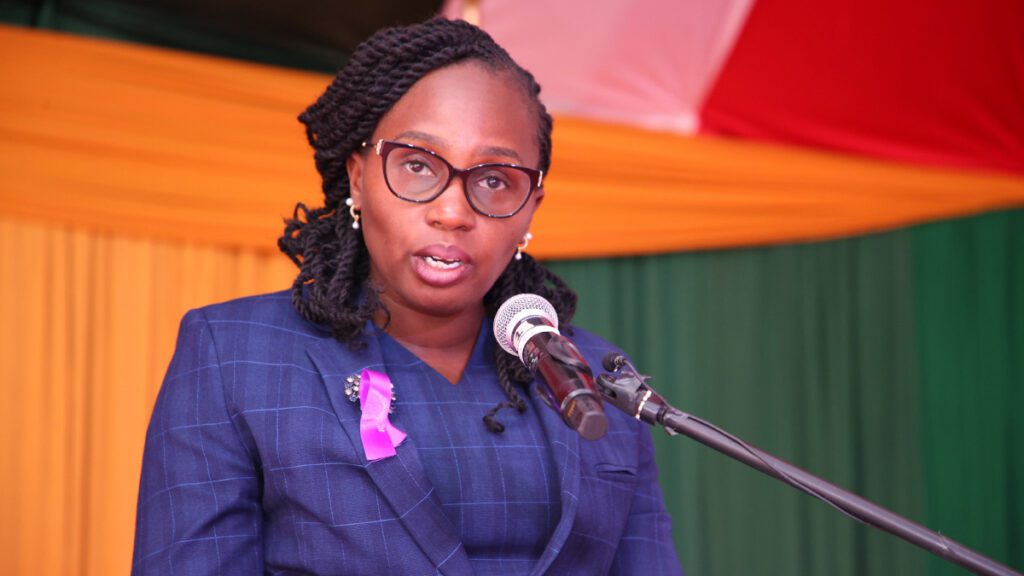Law Society of Kenya (LSK) President Faith Odhiambo has pushed back against Interior CS Kipchumba Murkomen’s accusations that the LSK is siding with terrorists, insisting that only the Judiciary—not politicians—has the legal authority to determine criminal guilt. She warned that misuse of anti-terror laws to suppress protests poses a grave threat to Kenya’s democracy.
Law Society of Kenya (LSK) President Faith Odhiambo has strongly rejected claims by Interior Cabinet Secretary Kipchumba Murkomen that the society is siding with suspected terrorists. Odhiambo, speaking during an interview on Citizen TV on Tuesday, insisted that only the Judiciary has the authority to determine guilt, not politicians or government officials.
“First of all, it’s not Murkomen to determine if someone is a terrorist or not. It’s the law. It’s the judiciary to determine and make that verdict,” Odhiambo said, invoking Article 50 of the Constitution, which provides the right to be presumed innocent until proven guilty.
Odhiambo condemned what she termed a dangerous abuse of the Prevention of Terrorism Act, arguing that the government is selectively using the law to suppress dissent during recent Gen Z-led anti-government protests.
She emphasised that while the LSK supports law and order and has condemned acts of arson and property destruction, the right to peaceful assembly is protected under Article 37 of the Constitution.
Selective Enforcement and Historical Context
Odhiambo questioned the government’s intentions, noting that previous protests involving opposition groups resulted in far more destruction, yet terrorism charges were never applied.
“We’ve seen leaders who are now sitting in oval offices being termed as treasonists and terrorists simply because they had dissenting views,” she remarked.
“Calling someone a thief doesn’t make them one. It is the court that must decide.”
The LSK president further questioned whether terrorism charges are being used to deny bail and prolong detention, rather than serve justice.
Human Rights Concerns and Legal Double Standards
Odhiambo noted that some accused persons had been released on low bail amounts, contradicting the government’s alarmist claims of security threats. She said such contradictions weaken Kenya’s international reputation and investor confidence.
“You can’t on one hand say terrorists are roaming the streets and, on the other, claim the country is secure for investment,” she said.
She also warned that the long-term stigma of terrorism charges—even without conviction—can permanently damage the lives of young protesters.
“If someone has looted or burned property, charge them under the correct laws. Don’t cherry-pick the harshest possible law to keep them in custody,” she added.
Police Accountability and Democratic Stability
Odhiambo questioned why no police officers have been arrested despite visual evidence of them appearing to collaborate with violent actors during the protests.
“Justice must be consistent. Protesters have been arrested, some for genuine offences. But how many officers have been held to account?”
She warned that misuse of such laws may come full circle, affecting current leaders in future political climates.
“Those in power today could be in the opposition tomorrow. If we normalize abuse of the law, no one will be safe in a fragile democracy,” she concluded.


